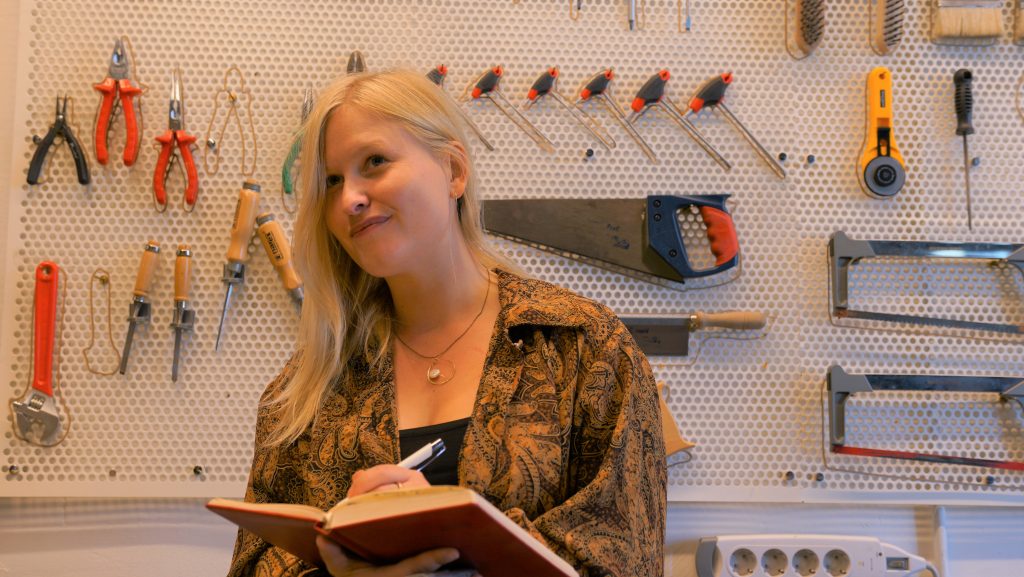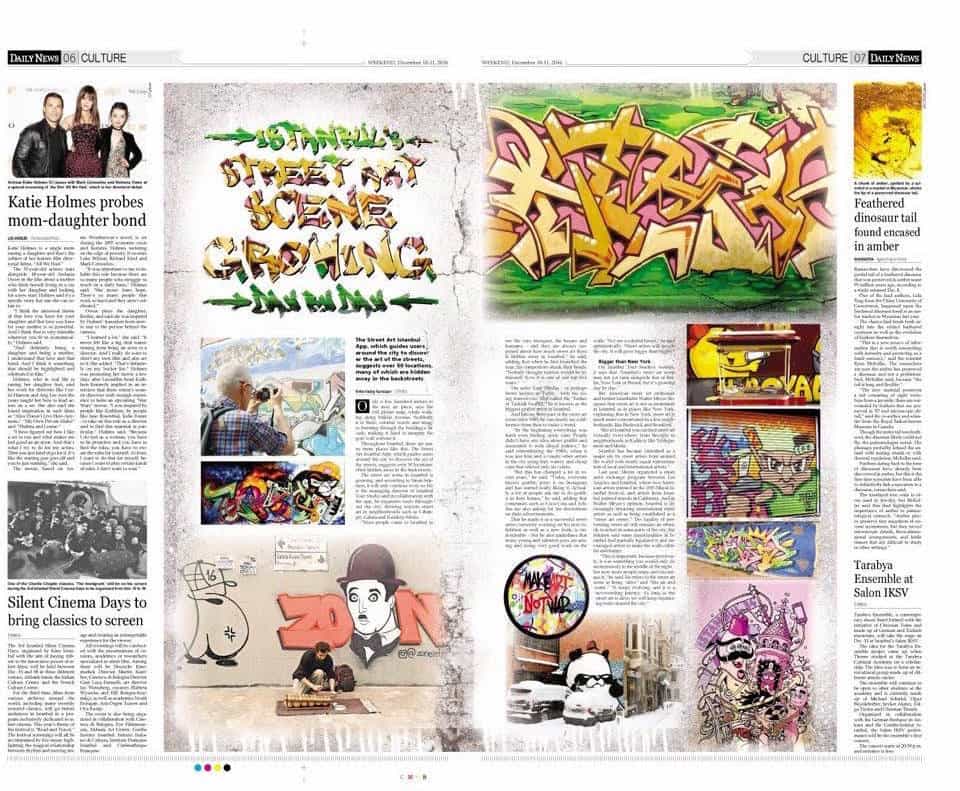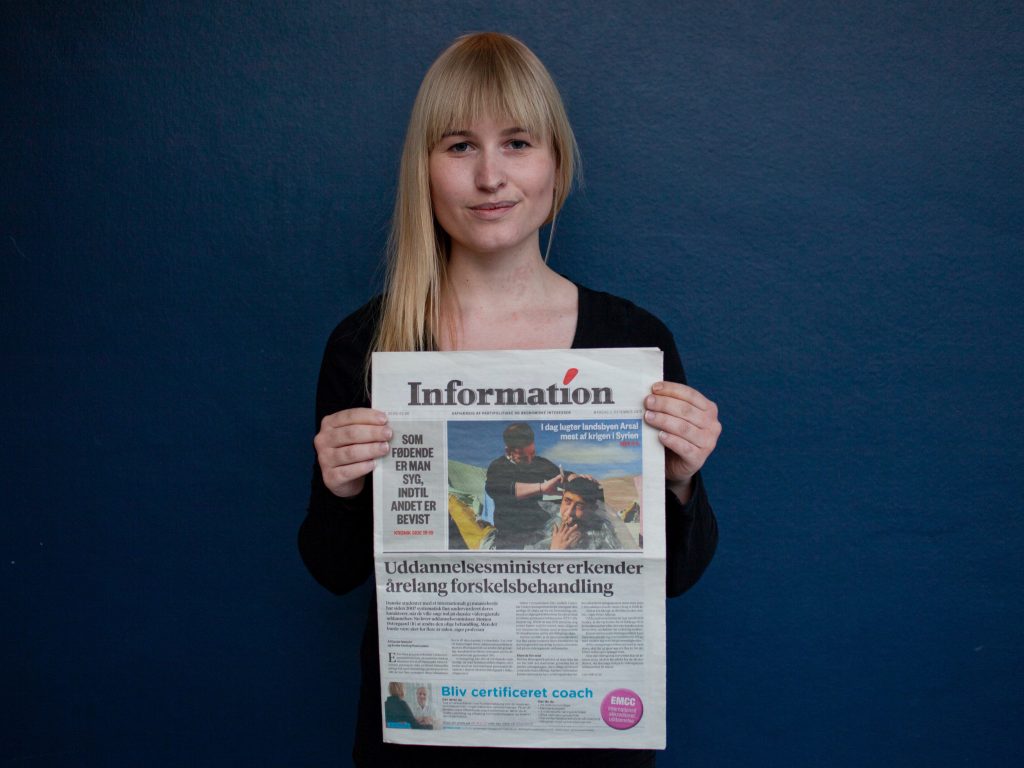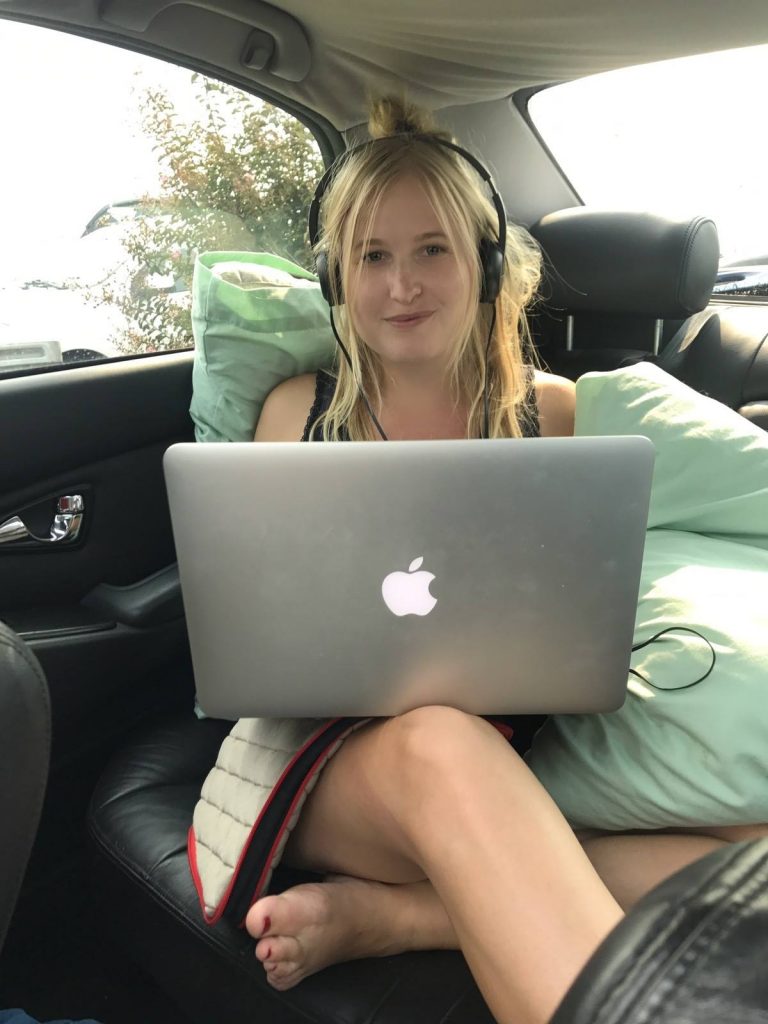The allure of freelance journalism is one based on notions of freedom, travel, excitement, new experiences, and perhaps even danger… anything to get that next story. Beyond the surface, it’s also one of hard work, late hours, constant dedication, and the unsung inherent stresses of pitching articles, research, transcriptions, deadlines, and so much more. Yet despite these obstacles, Emilie Kleding Rasmussen has always known this is the career for her. As it so often does in this city, a spontaneous Erasmus semester evolved into something bigger, with Emilie eventually focusing her thesis work on Turkey, taking on an internship at Hürriyet Daily News, and moving on to build the early foundation of her career in Istanbul. In that time, she’s gone on to write a number of features for Hürriyet, as well as for the popular Danish publication Politiken, while pursuing other leads as they come along. Happily embracing the lifestyle of a digital nomad, Emilie’s passion for her medium shines through in her work, as does her love for her temporary home country. With far-reaching ambitions, it’s clear this deep commitment to the craft is destined to grow in inspiring new directions.
We took some time to speak with Emilie on her motivations to pursue a freelance career in Turkey, the varied scope of her published work, the challenges of getting started and achieving success in the field, and what the future holds for this promising young journalist.

Could you tell us a bit about yourself?
Sure, my name is Emilie and I’m a journalist and a writer. I’m 26 years old. I was studying journalism in Denmark and decided to spontaneously take an Erasmus year in Istanbul. I came here, a bit panicked at first, but two weeks after I arrived I called my family and informed them I wanted to stay longer. I just loved it instantly. I came to Bilgi University for a semester to study, focusing on communications, documentary classes, and so forth. Then I spent my last semester here as well, working on my thesis. I wrote it on the referendum here, focusing on the work of activists for two months. I graduated a little over a year ago and then decided to come back to Istanbul a few months later. I’ve been living and freelancing here ever since.
What attracted you to journalism in the first place?
I’ve always wanted to be a journalist. It’s such a cliche answer for journalists, I know. My parents had some friends who are really famous journalists today. I became fascinated in telling stories. I was this kid who would stay up at dinner parties listening to their conversations for hours and hours. I could just sit in a corner and listen. I always wanted to tell stories in some form or another. When I finished high school, it was the only education I pursued. There was one school in Denmark, it was my dream school, and I got accepted.
I actually also spent a year at an American high school where I wrote for the school newspaper. I thought it was great, I really loved it.

Since arriving to Istanbul, what has your professional scope been?
So I spent some time working for Hürriyet Daily News. It started because of an internship I had with Bilgi University. I was searching for photographs and helping with practical stuff. Then I slowly drifted to the English section of Hürriyet. I would just ask a lot about what they were doing, started writing articles, and moved on to features. For example, I wrote about vegans in Istanbul, some bands starting up with Syrian members, street art, and this type of feature based content. They’d let me do double features and gave me all the space I could want. They were really great with the layouts.
Then I started writing travel articles for a Danish newspapers that Hürriyet were also interested in. Then it turned into a job for a little while. They translated my features and they became Turkish features in the real Hürriyet. It was really fun having articles published in Turkish.
Now I work for a Danish newspaper, Politiken. It’s a national newspaper. I’ve been working with them since 2014. I worked full time in an internship there for a year and a half, got training, and transitioned. I was covering politics, news, investigative journalism, etc. at the time. Then after school I returned and have been freelancing for them ever since.
What’s your scope in that role?
At the moment, most of my content is interviewing Danish people over the phone, which I’d be doing anyway in Denmark. For example, right now I’m working on interviewing six different Danish designers and doing small portraits on them. So it’s like being a digital nomad in a way. I was doing this work last year while driving around the United States. Or for an example, I did an interview from an airport. It’s just a nice baseline to have.
I’ve also been doing work in Turkey as well. I’m currently interviewing a Turkish designer for example. For obvious reasons, I don’t do much hardcore news. That being said, I do try to get some seriousness into the lighter stories.
One of my goals at the moment is to get involved with more English speaking media. I’m planning to pitch stories to small up and coming travel magazines. I want to focus on the culture angle and also include interesting people here. That’s my goal for the year. I want to cover more on what takes place in this city. I want to show Istanbul beyond what they hear in the news. These days Turkey is portrayed badly in so many ways, not only politically and economically, and it’s important to show the other side of the country – the everyday people, the everyday traditions. Their lives are continuing to go on, and it isn’t really being heard.
Of all the work you’ve done in your time here, is there a particular piece that you’re especially connected to?
Well, it would have to be my thesis. I covered the referendum here, from both sides – the “yes” and “no” voters. It was interesting to see how dedicated and brave people were. It was really a journey into understanding the country, seeing the hope that people have for this country from both sides. When you’re not from a place, you don’t speak the language, or don’t have that cultural and political mindset from being born there… it’s really an opportunity to learn a lot. There’s so many layers and so much history behind what is shown to us in the news. There are local and national problems that you may have briefly seen in a newspaper, but the reality is totally different. It was a two-month research effort, I was following sources night and day. It was really hard but I got to know Turkey a lot more.

What is your day to day like? How does ATÖLYE tie into it?
Well, I’m a freelancer and have been working as a freelancer through my studies as well. I’m super used to working from home. I actually love it a lot. There then came a time when I realized I need more structure and everyday routine. I looked at different places and I totally fell in love with ATÖLYE – the vibe there, the people, the atmosphere, the design. Since going there, I really feel a lot more connected. I go 10 days out of the month and it’s perfect. Other days I can work from home or a cafe, but for those ten days I know I have a base there. It’s important for both my work and me. It’s nice to have a çay there or meet someone for lunch, and to get inspiration from people. You can get ideas from people or can work together in the future. Especially when you live in a city that isn’t your own, it’s important to get routines in addition to the freedom.
What is the process from getting an idea for a story to publishing it?
Well first, it can be either a concept or a person I’ve talked to. Then I do a bit of research and write to editors. Hopefully they say yes and then I’ll start going around doing interviews, doing more research, and start writing. I actually write best in my bed. ATÖLYE is perfect for the pitches, research, and transcription, and it’s really motivating on this side. Then when it’s time to be creative, I get in my bed with headphones on, close the door and curtains, and just start writing. If I’m in the right mood, it can last hours. I just need to catch that moment. Of course I can always write, but in those moments, my creativity really peaks.
And the final step is just sending it off to the editor?
Yes. Also, I never write anything without having arranged it with an editor first. This is how it works in Denmark at least. They want to be in on the story from the beginning. It might be business minded, but I want to make sure that everything I write will go on to be published. Sometimes I’ll write stuff, for example for a travel newspaper, and it might only get published a year and a half later, but it still gets published. Usually though, it gets published around when I hand it in.
It’s an awesome job honestly. I get to focus on things that my heart really beats for.
What about challenges in your line of work, beyond the obvious concerns here?
I suppose it’s the expectation of always being available. Some sources I have, whether in Turkey or Denmark, can call me at any time. Editors and photographers as well. They might write or call me at night or in the morning. They expect you to always be online. That’s just how it goes. It’s the nature of the business, but it can be exhausting. As you’re working with people, it can be unpredictable, but it’s also beautiful in that way. I can often feel like I’m always working, and trying to balance it. I’m actually pretty bad at it. [Laughter]
You also never actually turn your brain off. You could be at a bar and talking to someone and think, “Oh! That’s an interesting story!” I often think I should live in the moment more instead of always having my antennae up. I guess it’s just something you learn with time.
I couldn’t imagine working a nine to five job right now anyway. I might be working nine to five, but it’s my choice and I’m not bound to it. I enjoy it right now. That might change as I get older, but for now it’s great.

What about what’s next on the horizon for you?
If everything with my ikamet goes well, I’ll be in Istanbul for another year. Then, in the Fall, I’d like to apply for some Master’s programs in the United States. There’s one at New York University, Literary Reportage, about mixing literature into journalism for long reads. I love storytelling formats and writing long. I love that language is a focus and the beauty of the language itself. You can cover a person or a subject and it doesn’t need to be just news. That’s what I am planning for now, but of course it also depends on scholarships and finances as well. I want to gain more experience and expand my network in English writing, so this would be a cool opportunity to get into the mindset.
For the year left in Istanbul, it’s for sure to write more Istanbul-focused content. Whether that be travel, city happenings, or larger coverage of the country, I want to cover it.
As we’re a publication for foreigners living in Istanbul, and advice or recommendations for our readers?
Well I definitely recommend getting all the historical stuff out of the way from the first day. The thing I fell in love with is all the unexpected stuff, all the surprises that you come across. There are so many hidden places, that have no signs or anything. Then you step into a corridor, go up a back staircase, and you arrive a terrace with live music and candlelight. Istanbul will keep surprising you with this.
For example, Limonlu Bahçe – it’s a little pricey, but it looks like nothing from the outside. Then you come inside and step down and there’s a beautiful lemon garden, good cocktails and food. Istanbul is full of them. They don’t do advertising, but you can find so many hidden gems. In my two years here, I’m still discovering new places.
Also, appreciate the slow living kind of lifestyle. I love going to a cafe, sitting, playing tavla for a few hours while drinking çay and smoking cigarettes. On a nice side street cafe, it’s the everyday feeling of the city.
To keep up with Emilie and her work, be sure to visit her on LinkedIn and Twitter.
ATÖLYE Spotlight is our series on the inspiring community members of Istanbul’s most creative space.
All images courtesy of the interviewee.









